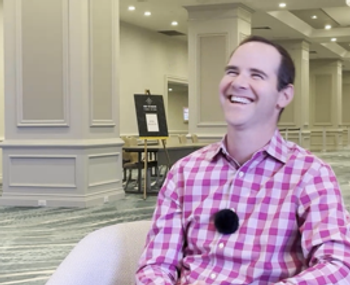
Study Explores Impact of Circadian Pathway, Insomnia Risk Genes on Sleep Disturbance in Autism
Connections between autism risk, sleep disturbances, insomnia risk genes and circadian pathways were analyzed.
A study of sleep disturbance in children with autism spectrum disorder (ASD) found that circadian pathway and insomnia risk genes may play a role in ASD liability, but have minimal impact on sleep disturbance.1
Because problems with sleep have been reported in 40% to 80% of children with ASD beginning in infancy and lasting throughout the lifespan, the researchers were curious about the role of copy number variants (CNVs) for genes linked to insomnia risk and circadian pathway, hypothesizing that ASD was linked to genomic variants disrupting pathways involved in insomnia and circadian rhythms. Rackeb Tesfaye and colleagues also looked at sleep disturbances in this patient population. Tesfaye is a PhD researcher at McGill University, Montreal Neurological Institute, Azrieli Centre for Autism Research, Montreal, Canada.
To test their hypothesis, Tesfaye et al analyzed 2 cohort datasets, which included 2569 simplex families with 1 ASD proband each and 2851 unaffected siblings and 3426 probands with ASD from multiplex families from the general population.1
Tesfaye et al identified 335 rare circadian genes and 616 rare insomnia risk genes. They noted that duplications and deletions with circadian genes were overrepresented in the ASD probands in comparison to siblings and unselected controls. In insomnia risk genes, only deletions—not duplications—were associated with ASD in both cohorts, with results remaining significant after the researchers adjusted for cognitive ability. CNVs with insomnia risk and circadian pathway genes were more strongly associated with ASD in comparison to CNVs with other genes, and circadian genes did not influence either insomnia traits or sleep duration in individuals with ASD.1
“Our findings provide evidence for the contribution of circadian pathway dysfunction to ASD, but the mechanisms by which these genes increase ASD risk are unknown,” Tesfaye and colleagues wrote. “Previous theories have put forth sleep disturbance as a causal factor for ASD risk and other psychopathologies… However, in this study, the limited effects of circadian genes on sleep duration and insomnia are unlikely to disrupt behavior and cognition enough to increase ASD risk. Instead, we propose that circadian pathway genes increase ASD risk with minimal to no modulation of sleep duration and insomnia.”
The researchers noted that further research in this area is needed in order to replicate their findings in similar and larger-scale studies.1 “Future studies investigating the combined effect of genomic variants and environmental factors on sleep measures, behavioral traits, and brain architecture are needed for a holistic understanding of the interplay between genes, sleep, and ASD,” they concluded.
Reference
1. Tesfaye R, Huguet G, Schmilovich Z, et al.
Newsletter
Receive trusted psychiatric news, expert analysis, and clinical insights — subscribe today to support your practice and your patients.







